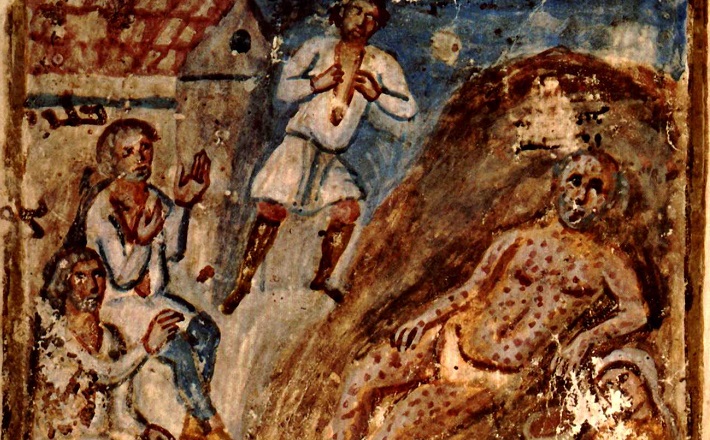Commentary on Genesis 2:18-24
Genesis is an origin story: a prosaic telling of how things came to be the way they are.
Genesis is poetry in prose, a theological accounting of how things that were seen, known, and imagined came to be. The text is replete with puns, double-entendres, and multiple readings. The adam, the earthling created from the earth, the human crafted from the humus, is a pluripotent being in rabbinic tradition. The final letter, mem, signals that plurality which is why the same term also means all of humanity. In Genesis 2:18 that plurality is contained in a single body which can (and perhaps should) be understood as including both genders. There is nuance in the relationship between grammatical and biological gender in Biblical Hebrew and as an origin story Genesis is not a biological or scientific text.
In Genesis, God is present, caring, attentive, thoughtful, actively nurturing. Assessing God’s singular creation God sees its need for companionship and addresses it immediately, making a statement about what it is to be human. Humankind individually and collectively need others of our kind — and not of our kind. (I commend to the reader James Weldon Johnson’s Creation for a powerful poetic take on this story.)
Generations of biblical scholars have observed that the language God uses for the companion, “helper” in many English translations is easily misread and misunderstood. “Helper” connotes “assistant,” someone less skilled than the person she is helping. However in Genesis and later biblical texts that help is very often divine, see Genesis 49:25; 1 Samuel 7:12; Isaiah 41:10-14 and many others. What is clearer is that this mighty helper corresponds in some way to the adam. That relationship is intended to be one of parity.
Each creature that is subsequently created is assessed and found to be lacking in that parity. For some readers, that the animals are created in this story as potential — but insufficient — partners for humanity places them in a subordinate, even utilitarian role. Others will see that animals and humans are formed in the same way from the same ground by the same God and see a deeper kinship. This creation exercise is presented as an experiment. The portrait of God is not omniscient here (the word itself is post-biblical). God created to see what would happen. God is apparently capable of being surprised. This is consistent with God’s portrait later in the story: Who told you that you were naked? And, is consistent with God coming down “in person” to see what is going on.
God finds what the ancestral human needs within it. Putting the earthling to sleep — was this a new experience? — God transforms it. The “deep sleep” appears in other parts of the scriptures as being from God, (2 Samuel 26:12; Isaiah 29:10) but in Proverbs 19:15 as laziness. The transformation God performs is akin to cellular mitosis; one is divided into two. God removes a “side” not a “rib” from the human creature who can be envisioned as undifferentiated, pluripotent or having both genders in one body. In the rest of the scripture, tzela is “side” or “hillside.” The rib story is an antiquated translation tradition that does not reflect the biblical use of the term, (see the construction of the sanctuary and its sides, Exodus 25-38, see also 2 Samuel 16:13; 1 Kings 6:5, etc.). This understanding is expressed in the lyric; This one this time is bone of my bone and flesh of my flesh… for from man this one was taken. (“from,” not “out of”)
Finally, the text describes the man leaving his parents and “clinging” to his woman and arguably her family, living with them. Subsequent texts will not indicate that Israel practiced matrilocation as the dominant form of house-holding, but it does occur. While it has been traditional to read this passage as regarding marriage, the word does not occur here and is rarely used in the Hebrew Bible. Also, the same word means “man” and “husband” and, the same word means “woman” and “wife.” That the two become one flesh has echoes in the Christian Testament, that men who held power in that patriarchal context should no more mistreat their wives than themselves. That understanding accords well with the text in Genesis. Finally, it should also be noted that the Israelites did not understand this text to require monogamy and there is no divine rebuke in subsequent texts that frame relationships between women and men in very different terms.


October 4, 2015